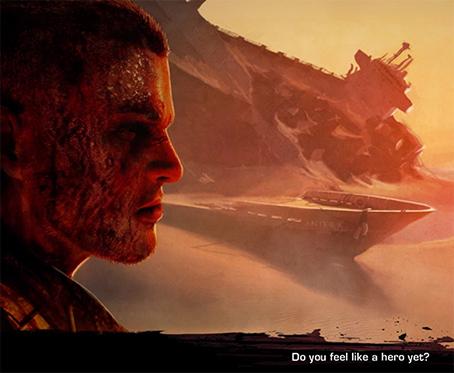In this sixth edition of How Games Tell Tales, I will discuss how the Beginner’s Guide treats the tension between authors and their audience, through a story in which a developer’s games get interpreted.
In Depth
How Games Tell Tales, Part 5: Bloodborne and Imagined Narratives
In this fifth instalment of How Games Tell Tales, I will discuss how games can tell stories without actually telling a story at all. I will explore how a game such as Bloodborne can create a narrative that players collectively imagine through exploration, vague hints, and atmosphere.
How Games Tell Tales, Part 4: Unreliable Narration, Militainment, and Spec Ops: The Line
In this fourth installment of How Games Tell Tales, I will discuss how games portray unreliable narration. Using Spec Ops: The Line as an example, I will show that the hyperreality of video games influences how an unreliable story can be experienced. I will also discuss the criticism this game has of military entertainment.
Detroit: Become Human and its Problematic Relation to History
This article is a continuation of the last article on Detroit: Become Human. In it I explore the game’s controversial relation with references to historical forms of oppression, as well as the lead developer’s (lack of) answers to this situation.
How Games Tell Tales, Part 3: Detroit: Become Human, Freedom of Choice, and Intended Play
In this third installment of How Games Tell Tales, I will discuss games that offer a large amount of player input. Using Detroit: Become Human as an example, I will explore how such choices can work, how most choices are not as meaningful as they seem, and how this intertwines with the concept of intended play.
How Games Tell Tales, Part 2: Nioh and Historical Simulation
In this second installment of How Games Tell Tales, I will discuss a particular aspect of video games: simulation. By using some theories on historical simulation, I will use Nioh as an example of how games can represent history and mythology.





